UNBREAKABLE KIMMY SCHMIDT Season Two Review
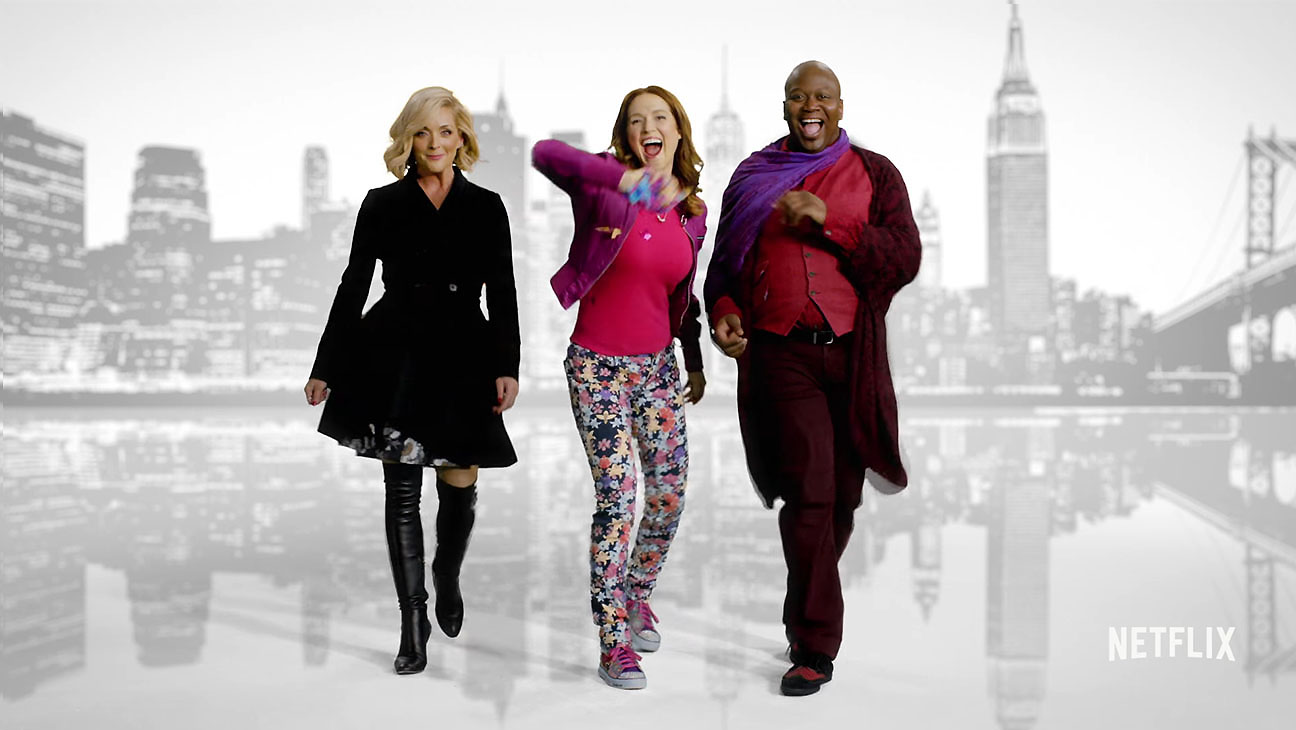
If you’ve been keeping up with my recent string of tirades, you’ll know that I currently have a bone to pick with Netflix’s content department. Surely, surely, Netflix isn’t in such a blackhole of quality that their putrid tendrils would creep over into new installments of their original, already beloved series? Well, as much as it pains me to say it, the second season of UNBREAKABLE KIMMY SCHMIDT is resolutely disappointing, gallantly making a few attempts at improvement in the latter half but largely unenjoyable as a whole.
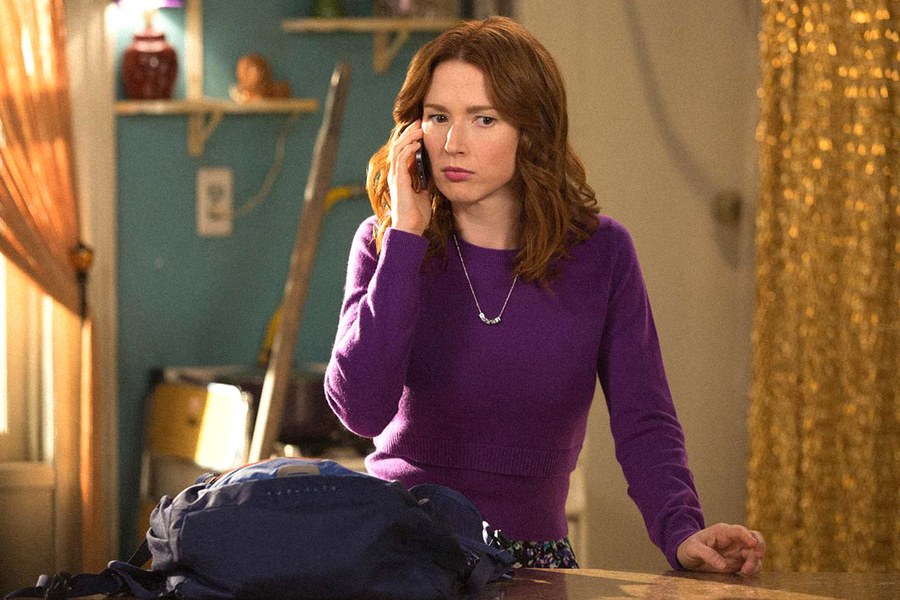
It’s me calling, I want some goddamned quality back
The root of all evil lays within the lack of cohesive narrative tension. Whereas it’s the nature of Netflix’s pastel-colored darling to have things be quite literally episodic, the first season at least possessed a conceptual thread of Kimmy adjusting back into modern society. Kimmy’s need for therapy and desire to reconnect with her mother get highlighted very late into the season, but this is far too little, too late; especially in regards to Kimmy’s mother, who only rears her head in the final episode. Oh, and Jesus Christ, Tina Fey as Kimmy’s alcoholic therapist Andrea is almost willfully unfunny, in addition to being rather morbid and sobering. The one effective narrative beat involving Kimmy is the fact that her PTSD occasionally bubbles up to disastrous consequences during romantic situations, but this feels too easily shunted off into the completely joyless Andrea subplot. In general, the second season seems content to throw up its hands and focus on Kimmy’s recyclable references to 90s pop culture. Apart from her opening entrance into the Christmas Store where she attempts to keep a job, Ellie Kemper’s smile seems to be more and more a plastic facade hiding her inevitable distaste for having to deliver lines that progressively sink in effectiveness.
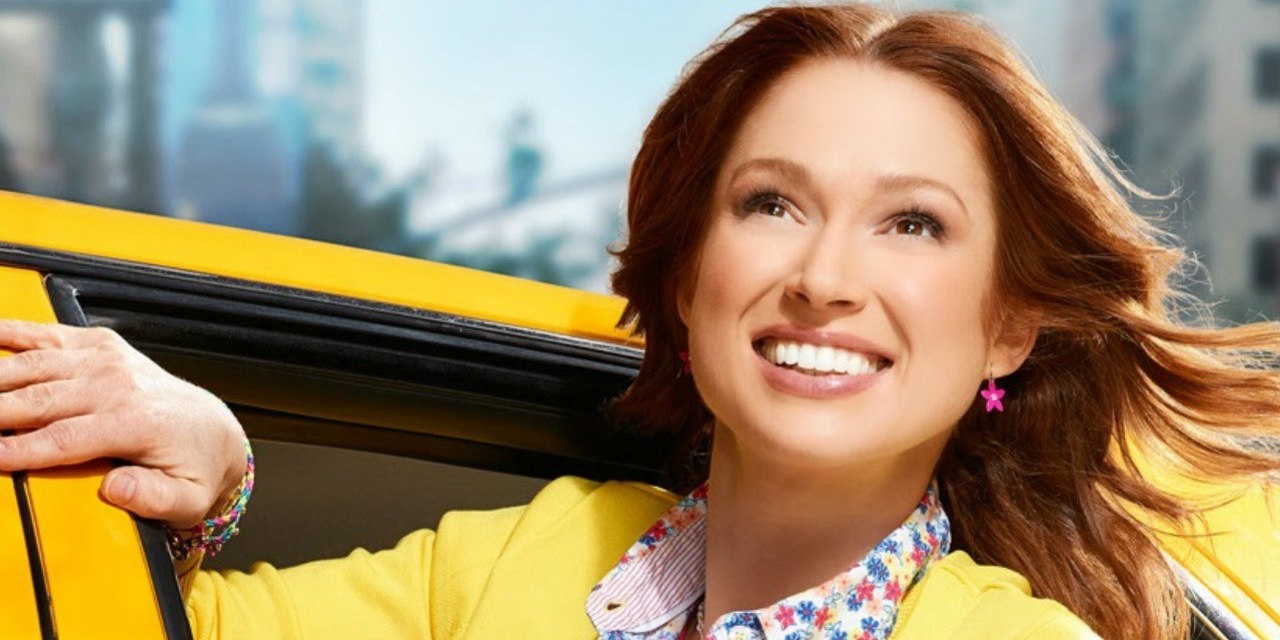
I’m not seeing too much behind those eyes
The diminished focus on Kimmy is ostensibly founded in a desire to focus on and expand upon the supporting cast, which I will concede makes sense on paper for the second season of any show. The highlight of this season by a midnight mile is Titus. The show puts his character in the hot seat, addressing his predilections for using those around him for his own selfish needs. Although more should have been done with Vonda, Titus’ ex-wife/beard, and Titus’ claims to have lived several past lives, I have nothing but praise to bestow upon his relationship with Mikey. The construction worker from the first season that realized that his sexism was rooted in closeted homosexuality and asked Titus out as a very, very small joke returns to extremely rewarding results. Titus and Mikey’s relationship goes through beats that feel genuinely realistic, utilizing outlandish humor to color the ups and downs of their love instead of relying solely upon it, and only occasionally making a predictable gay joke.
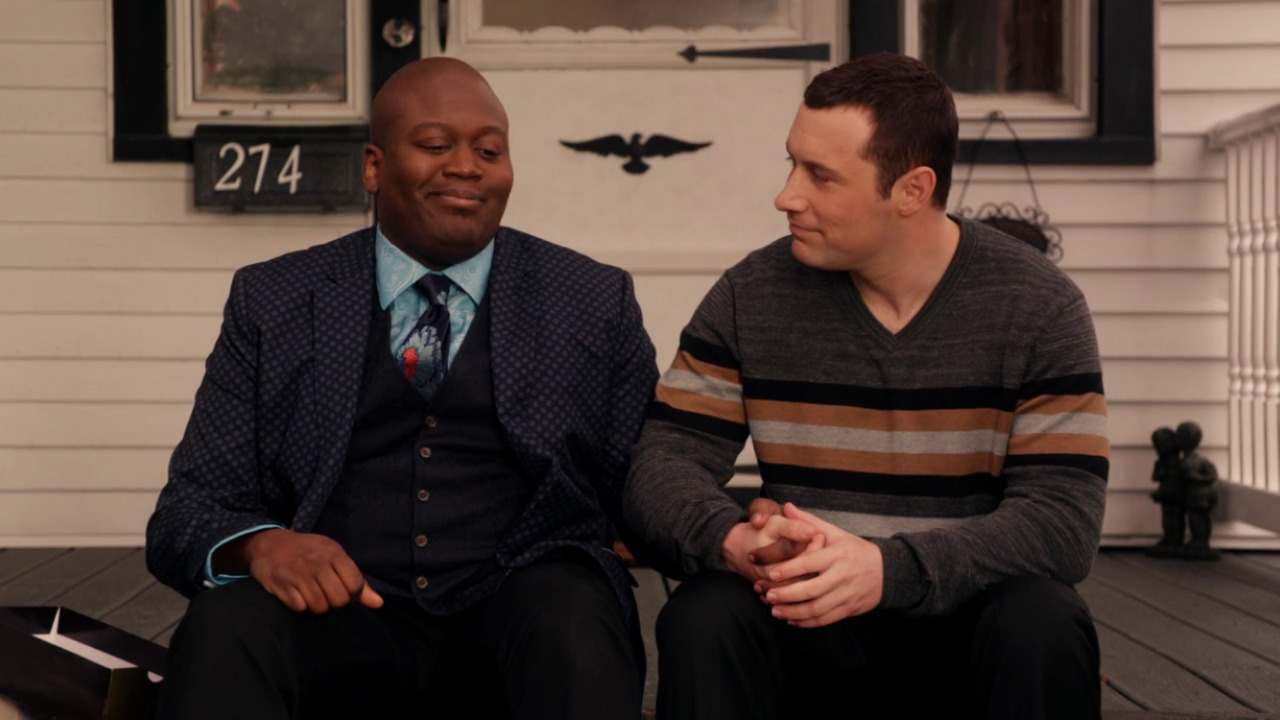
Just fuck me up fam :’)
As for Jacqueline, she peaks early and largely spins her wheels for a majority of the season. Now having to clamber her way back up the ranks of the New York social ladder despite the best efforts of alpha mom Deirdre Robespierre (Anna Camp), Jacqueline is largely up to her old tricks. Although I absolutely despise Deirdre’s hamfisted personality (we get it, she’s smart but became a trophy wife, so please, sir, I don’t want any more), the scene where she admits that she wants Jacqueline to fight back and become her rival is a highlight of the season. However, Jacqueline’s friend, Amy Sedaris’ grating Mimi Kanassis, does not experience a similar moment of redemption, and I spent every second she was on screen praying for a stroke of deus ex machina that would terminate her with extreme prejudice. As for Lillian, she’s largely without consequence either way. Although her desire to keep the neighborhood she’s grown to love is an identifiable and sympathetic plight, she stays on this trajectory without budging an inch, spending several episodes protesting the same construction site.
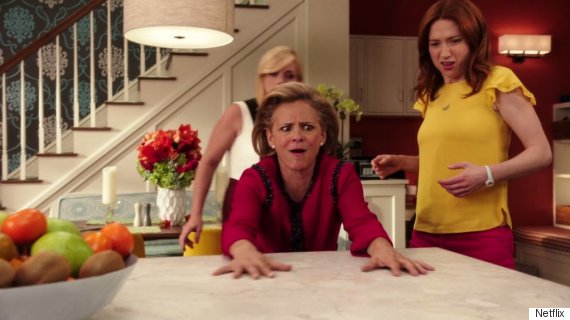
I shared Mimi’s face here for most of this season
Whereas the first season of UKS featured a constant, complex layer of jokes that required paying attention to, the second season seems largely content to aim for low-hanging fruit and pop culture references that feel like they were written by a middle-aged white man who was cryogenically frozen in 2012 and inexplicably brought back to wreck havoc four years later. Apart from some totally fresh, hot, intelligent jokes about Kanye West’s personality disorders, we get lots and lots of references to the Kardashians and kvetching about how hipsters are gentrifying old neighborhoods. In addition, the roiling layer of sheer, unabashed weirdness that ran under the surface of the first season has been largely tampered out, most likely due to the removal of the cult elements. Other than Pupazza in “Kimmy Goes To Her Happy Place!,” which is certainly worth the price of admission, things feel almost, dare I say, network in conceit and intent. This is where my main problem with the second season derives from; it feels comfortable to rest on its laurels, not progressing the humorous capacity of any of the quirky personalities we fell in love with the first time around.
Before I move on to what’s good, can someone please explain what they were thinking with these musical elements? Other than an effective callback that strengthens the “Daddy’s Boy” mythos, every song possesses the same intelligence and poise of song parodies I made in middle school. The season refuses to quit, having Kimmy and Titus send away for cassette tapes of abominable knockoffs (“Brother Baptist” instead of “Sister Christian”! Ain’t that just a riot?), in addition to Titus’ tacit rendition of fake showtunes from musicals that are as unfunny as they are obvious. However, I must give some credit for making the callback to “Pinot Noir” understated, an unprecedented example of maturity when compared to the rest of the musical dreck.

Mfw there’s a joke about Hanson’s “MMMBop” in 2016
Now of course, not all of it is bad. The show makes a rather intelligent commentary on internet flamewar culture with “Kimmy Goes to a Play!,” wherein Titus gives a performance as Murasaki, the Japanese geisha he was in a past life. Deftly offering many different perspectives on the issue of racial performativity and cultural appropriation, this episode admits culpability for the show’s own occasionally controversial racial themes while at the same time highlighting some of the more egregious interpretations of internet social justice. Furthermore, Kimmy’s relationship with Dong is among the better aspects of the second season, and their attempts to go behind the back of Dong’s kooky green card wife Sonja are a treat to behold, with the Steve Buscemi-directed “Kimmy Goes to a Hotel!” being sweet, funny, and finally maximizing an Asian male lead as a character with sexual agency.
The one thing the second season demonstrates skill at is celebrity cameos and callbacks to the first season. As mentioned above, David Cross is delightful as Russ Snyder, a Jewish reparations lawyer that Jacqueline falls for, and Jeff Goldblum is the star of the show as the Jerry Springer-esque Dr. Dave, contributing to the best episode of the season (“Kimmy Meets a Celebrity!”). Although the absence of Donna Maria will disappoint fans (and I was personally let down by Richard Kind’s failure to return as Kimmy’s GED teacher, Mr. Lefkovitz), Cyndee has a memorable return as a guest on Dr. Dave’s show, and Gretchen’s inability to do anything but fall into another cult is a surprisingly powerful insight into her character. And don’t you worry, Jon Hamm is back as well, and his brief appearance is so intriguing that it begrudgingly makes me interested in staying tuned for the third season.

Mostly to see if Murasaki will stick around
The very fact of the matter is that comedies have to be funny, and the second season of UNBREAKABLE KIMMY SCHMIDT simply isn’t, at least in a way that’s consistent. The jokes are juvenile, obvious, or nonsensical, and irredeemable characters such as Mimi Kanassis get far too much screen time. Perhaps most disappointingly, also absent are the messages of self-empowerment and independence, except when slammed into our heads with a sledgehammer a la Gretchen flashing her boobs at a car after a rap song encouraging her to do so blasts from it, followed by Kimmy screaming about how she doesn’t need to do what men say. I will allow the argument that it’s a point in the show’s favor that it attempts to add depth to the supporting cast, but when it detracts this notably from quality, red flags must be raised. Things feel diluted, tired, and lacking the vitality and inspiration that posited the show’s voice as something to be paid attention to. The show’s already been renewed for a third season, so perhaps it will find its stride once more, but so far, Netflix’s model for production has led to almost nothing of definable quality.
Verdict: Do Not Recommend
UNBREAKABLE KIMMY SCHMIDT is available in its entirety on Netflix



